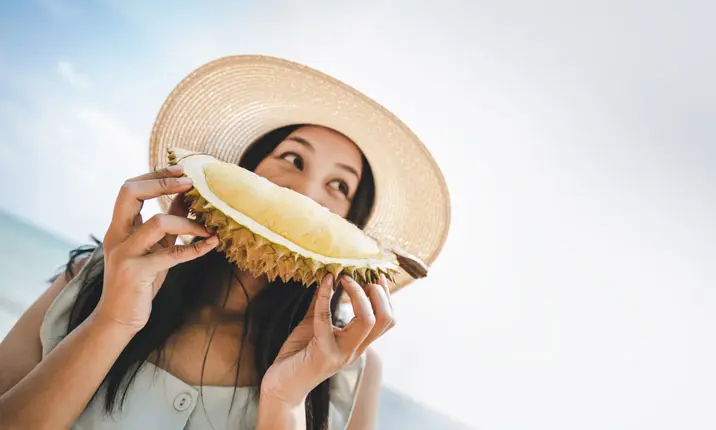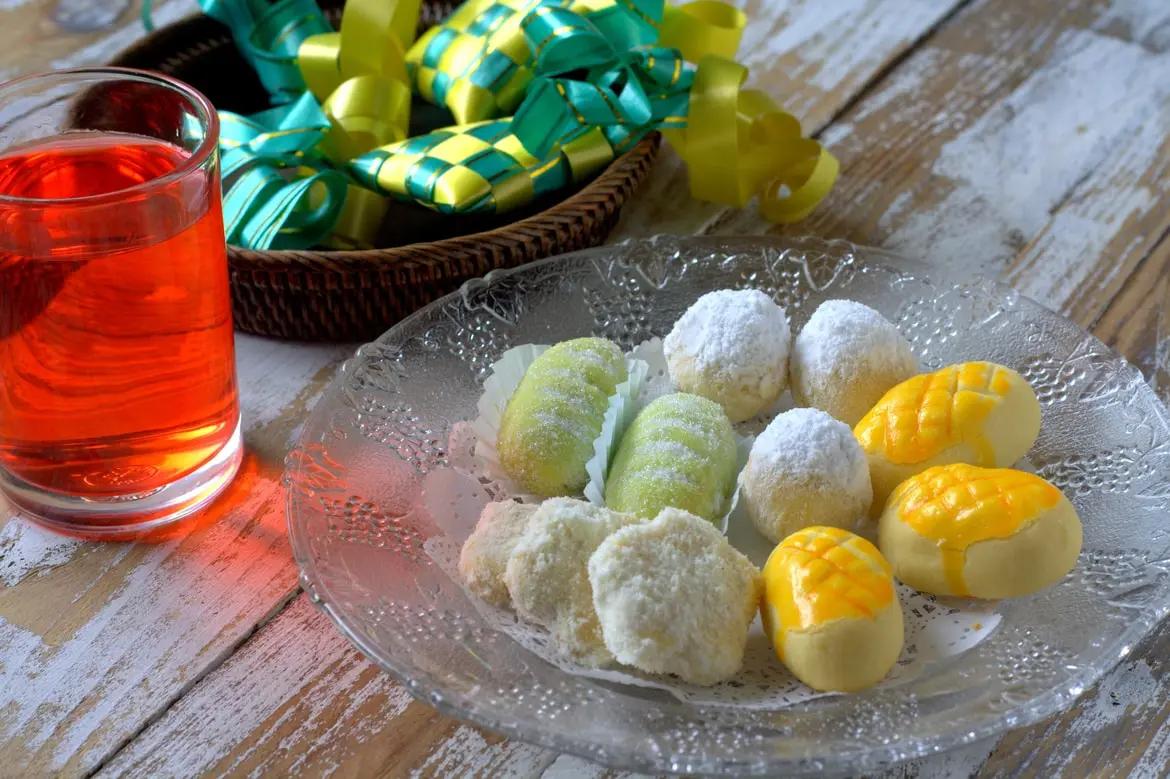

Source: Shutterstock
6 Nutritional Benefits of Durian
Last updated: Tuesday, June 25, 2019 | 3 min reading time
Apple Chan, dietitian at Gleneagles Hospital, explains more about the King of Fruits and why its many nutrients make it a good addition to your diet.
Few fruits are as divisive as the durian.
Beneath the thorny exterior and pungent aroma, the king of fruits boasts a smooth creamy texture and bittersweet taste that is loved by those willing to overcome the inconveniences of husk and smell.
Those that love it are more than prepared to overcome the extremely pungent smell that the durian leaves in its wake to indulge in its creamy goodness. Those that hate it argue that the looks and smell are all nature’s way of telling you that durian was never meant to be eaten.
Beyond appearance, smell and taste, the durian attracts many myths around purported health risks.
Over the years it has been claimed that eating durian raises blood cholesterol, when it actually has zero dietary cholesterol. Consuming it with beer, it can pose risk of death – You could feel discomfort as your body tries to metabolise both, but there is no evidence that it can cause death. There is also the myth that it should be eaten with cooling mangosteen to negate its inherent ‘heatiness’, although there is no scientific evidence of this. The two fruits are harvested at the same time, and are often sold together.
Beyond these myths, the King of Fruits does pack in a whole lot of goodness, and here are 6 reasons why aficionados will say “I told you so.”
1. Like chocolate, durian can make you happy
Durian contains the amino acid tryptophan. When broken down, it gets converted to serotonin, a neurotransmitter responsible for making us feel happy and relaxed. So, the next time you notice those happy vibes while enjoying a seed or two, you now know why.
2. Durian may help regulate blood pressure
Nearly 1 in 4 Singapore residents between the ages of 30 and 69 suffer from hypertension. This puts them at risk of heart disease, stroke and kidney failure. The good news? Durian can play a part in regulating blood pressure because it is a dietary source of potassium, an electrolyte that helps to maintain blood pressure levels. Having said that, it’s important to also keep those durian seeds in moderation!
3. Durian may help you sleep better
The higher your levels of melatonin, the hormone that controls your sleep cycles, the better you sleep. Durian contains tryptophan, an essential amino acid that is required to increase the levels of melatonin. So eating a seed of durian near bedtime may help you sleep better.
4. Durian may help combat skin pigmentation and wrinkles
Durian contains more vitamin C than many tropical fruits. Vitamin C has antioxidant properties that help to fight free radicals in your body, which can help reduce the appearance of pigmentation and wrinkles. So, including the fruit in your diet could supplement your beauty regime, although like all good things, its best consumed in moderation.
5. Durian contains nutrients that may help support bone health
Durian is rich in the minerals iron, copper and potassium, all of which are essential for maintaining strong bones. A study by the National Centre for Biotechnology Information in the United States showed that having a higher iron intake also helps to increase bone density, implying that calcium is not the only contributor to maintaining bone health. These essential minerals can aid in the prevention of osteoporosis.
6. Durian boosts energy
Next time you need an energy boost, consider a durian seed instead of reaching for that cup of coffee or energy bar. Being high in carbohydrates, durian could also provide that energy boost when needed. Two seeds may give you as much energy as a medium-sized banana. The high potassium content in durians can also help reduce fatigue and relieve anxiety.
Like all good things in life, enjoyment in moderation is key. Should you have any questions about your dietary habits and how fruits like durian can be incorporated into it, consult your doctor or dietitian today.
See, J. (2017, December 15) 7 Surprising Benefits of Eating Durian. Retrieved September 8, 2019, from https://www.shape.com.sg/food/7-surprising-benefits-of-eating-durian/
Cheong, T. (n.d.). Durian Myths: The Truth About Durian and Alcohol, Cholesterol & More. Retrieved September 8, 2019, from https://www.healthxchange.sg/food-nutrition/food-tips/durian-myths-alcohol-cholesterol
Staughton, J. July 12, 2019. Top 8 health benefits of Durian. Retrieved September 8, 2019, from https://www.organicfacts.net/health-benefits/fruit/health-benefits-of-durian.html
Cheong, T. (n.d.). Durian Myths: The Truth About Durian and Alcohol, Cholesterol & More. Retrieved September 8, 2019, from https://www.healthxchange.sg/food-nutrition/food-tips/durian-myths-alcohol-cholesterol
Staughton, J. July 12, 2019. Top 8 health benefits of Durian. Retrieved September 8, 2019, from https://www.organicfacts.net/health-benefits/fruit/health-benefits-of-durian.html
 Brain & Spine Care
Brain & Spine Care










